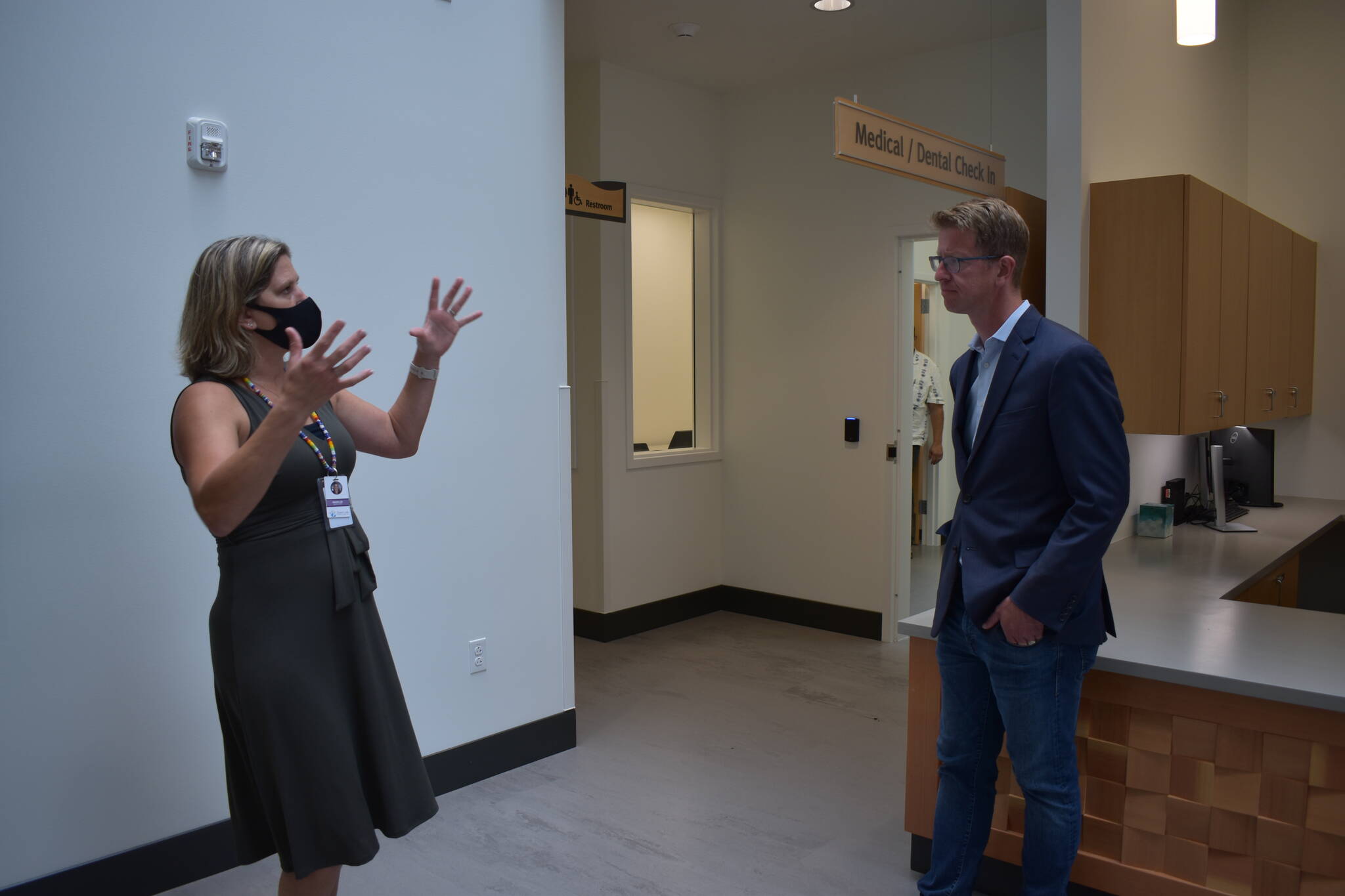For many people across Washington, the impacts of substance use disorders can be seen in almost every facet of life. The toll it has taken on communities, families and children has increasingly become harder to ignore from alarming rises in unemployment to crime, homelessness and mental health issues.
While the opioid crisis has existed for years, statistical data shows drug overdose deaths have been exacerbated by the COVID-19 pandemic. The number of deaths tied to drug overdoses involving synthetic opioids was four times higher in 2021, when compared with recorded deaths in 2019, Washington State Department of Health data shows.
Although the problem on how to address the issue continues to plague cities across the country, a prominent indigenous Native community within Grays Harbor County is looking to combat substance use disorder that could benefit the county entirely.
The Quinault Wellness Center gave its first glimpse of what it can offer to the public on Wednesday, Aug. 31, which coincided with International Overdose Awareness Day, in an open house format that garnered more than 150 attendees.
The $20 million facility, which was fully funded by the Quinault Indian Nation, drew many of Washington’s elected officials, ranging from Rep. Derek Kilmer (D-Gig Harbor) to District 19 legislators Sen. Jeff Wilson, Rep. Jim Walsh and Rep. Joe McEntire.
District 24 lawmakers Reps. Mike Chapman and Steve Tharinger were also in attendance, as were Aberdeen Mayor Pete Schave and Hoquiam Mayor Ben Winkelman.
After the wellness center was blessed with a Quinault tribal dance, Quinault Indian Nation President Guy Capoeman spoke ahead of the ribbon cutting about the new treatment facility.
He made it a point to recognize that addiction problems are a serious issue in the Grays Harbor community, and that help is needed now more than ever.
“It’s real and it’s affecting our communities. Everywhere we go we see it as we drive down these streets or the streets in any city, in this state, and elsewhere around the world,” Capoeman said. “Change needs to happen now. This place is where we’re going to make that positive change.”
Capoeman was adamant in saying the success of the treatment facility will have downstream effects in inner harbor cities. He also said the center is designed for people who are personally ready to receive help, and the center will not force aid on anyone unwilling to be helped.
Following the ribbon-cutting ceremony, attendees were invited to take a tour of the facility as finishing touches are still underway.
A number of services will be readily available for the public, such as assessments, education, and counseling for substance use disorders, mental health counseling, psychiatric medication management and medication-assisted treatment among a wide range of other care options.
Dawn Lee, who serves as a Substance Use Disorder Professional, said when at full capacity the treatment center can help up to 800 people at any given time once they are in the system.
“A lot of what we provide in here is comfortability and care reassurance for the client. We know patients have a bad track record sticking to scheduled appointments, so we plan to prioritize around walk-in appointments,” Lee explained. “A part of our treatment model removes barriers for a client to gain access to treatment. We will provide transportation within the county and reservation, as well as offer child watch services to our clients.”
Lee also noted clients will receive peer support, and case management to help them with their rehabilitation, and that assistance with insurance enrollment will be available for people who do not have any. She also said even though the wellness center is operated by the Quinault Indian Nation, the estimated amount of non-tribal clients is excepted to be around 85 percent.
Perhaps some of the most expansive options of care the treatment facility provides are primary medical care and dental care.
Dr. Denny Homer, who will serve as the dentist for the wellness center, said the goal is to provide for all client needs at the facility.
“We pretty much want to avoid referring any of our patients away; that way we can give them the extra care that they more than likely need since they’re here,” Homer said. “In terms of the services that we can provide, we have more than a lot of the dental facilities I’ve worked at in the I-5 corridor areas.”
Homer noted simple work, such as cleaning and X-rays to the more extensive work like extractions and denture fittings can be done at the treatment center. He also was quick to note that with the vast job openings in the health field, the wellness center needs all the hands it can get to assist clients in the best way possible.
Although the public was allowed to tour the facility, the grand opening of the Quinault Wellness Center, which is located at 511 West Heron St. in Aberdeen, is expected for Oct. 3. Walk-in appointments will begin starting at 6 a.m. and people are encouraged to call the wellness center at 564-544-1950 if they have any questions.



